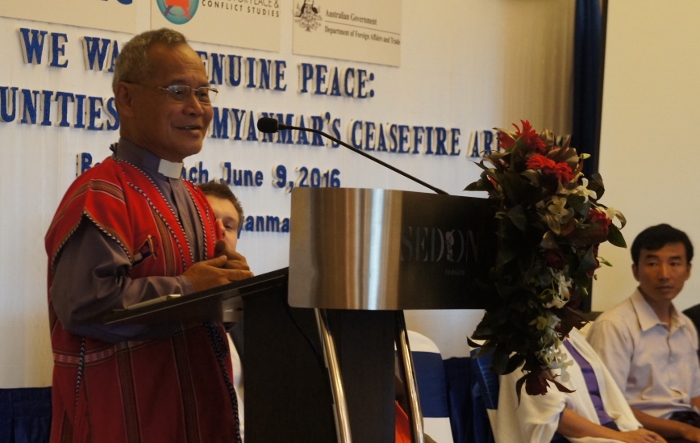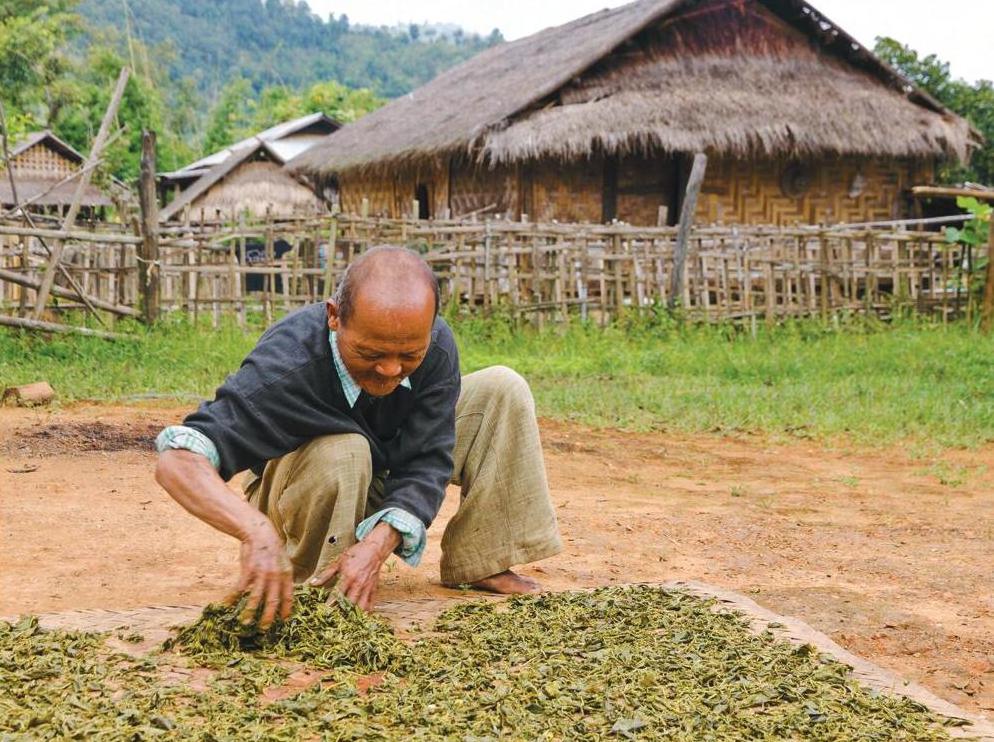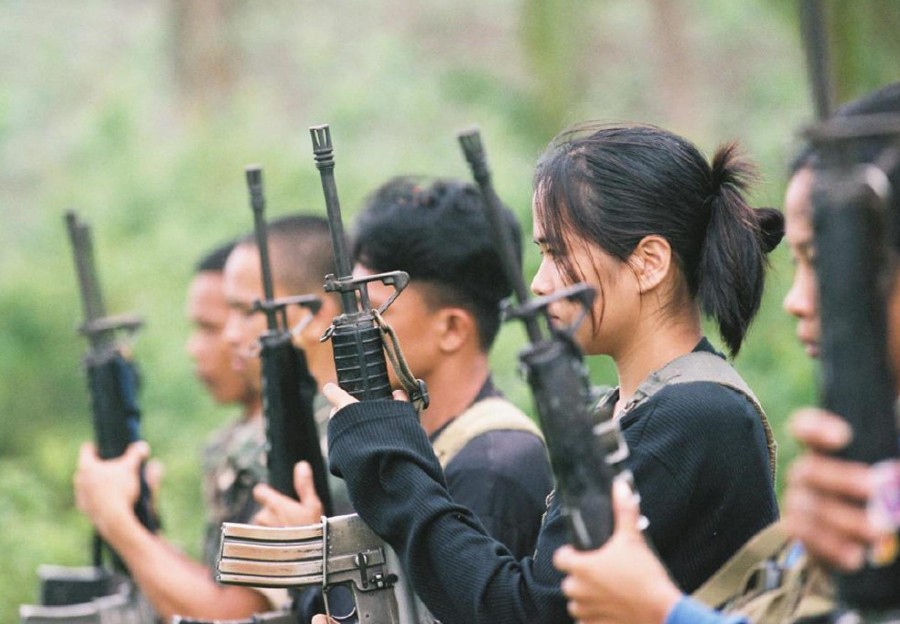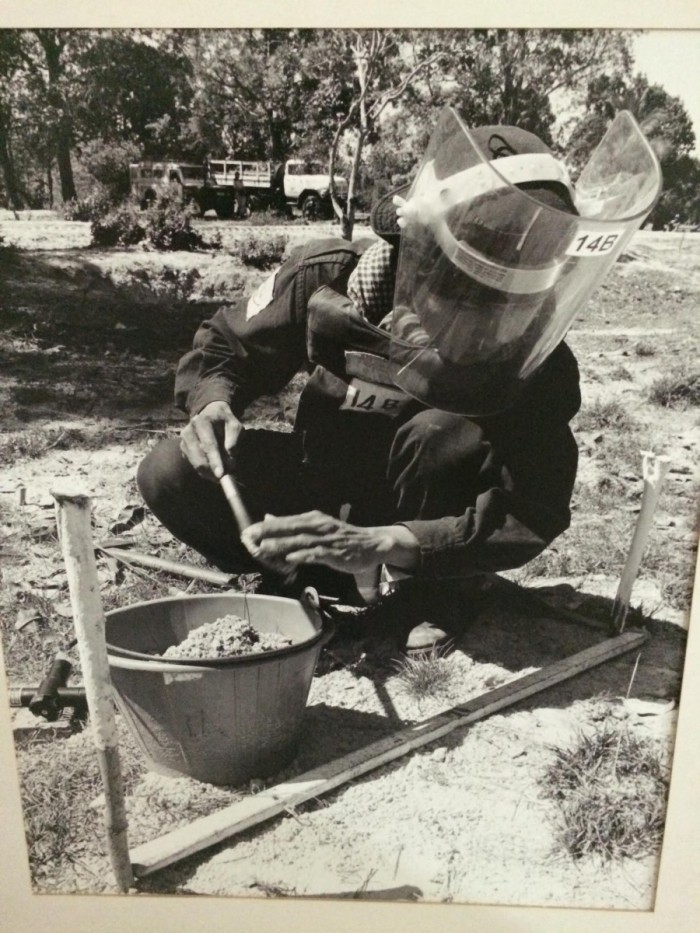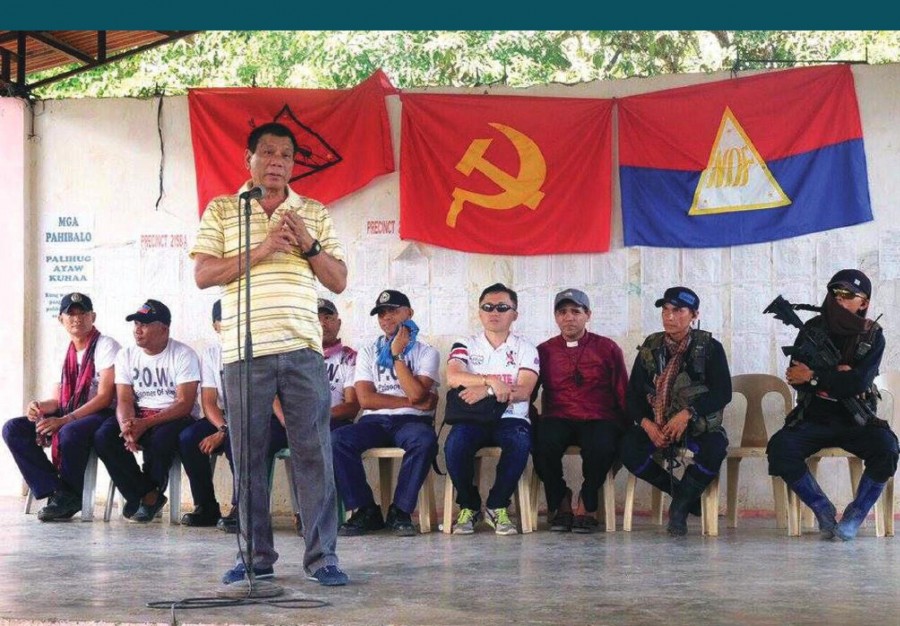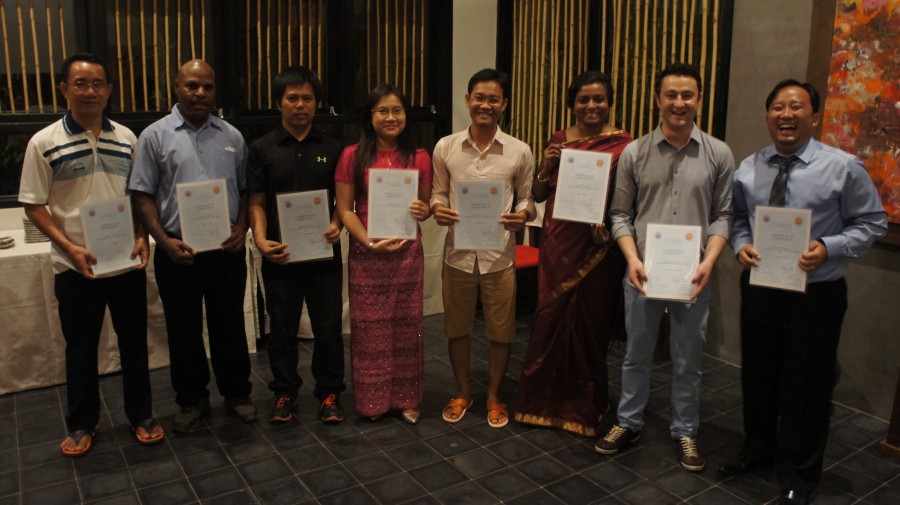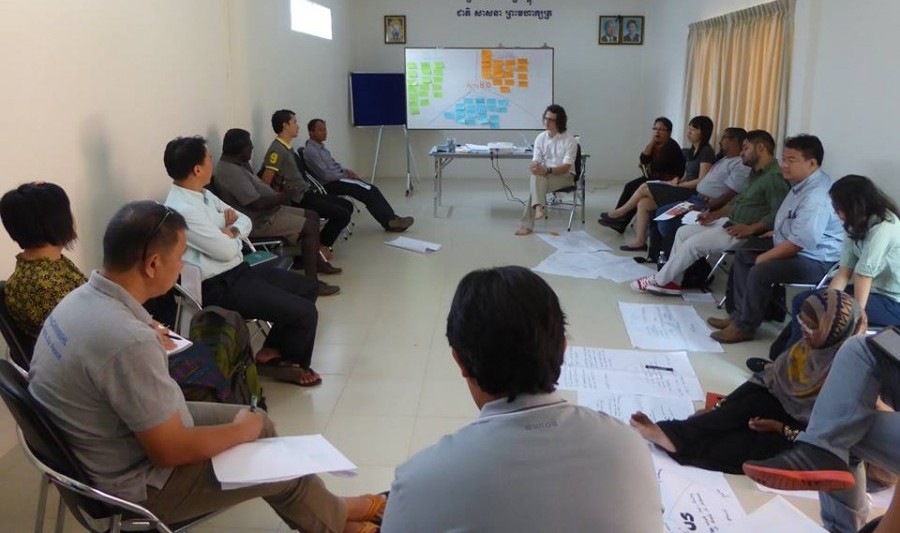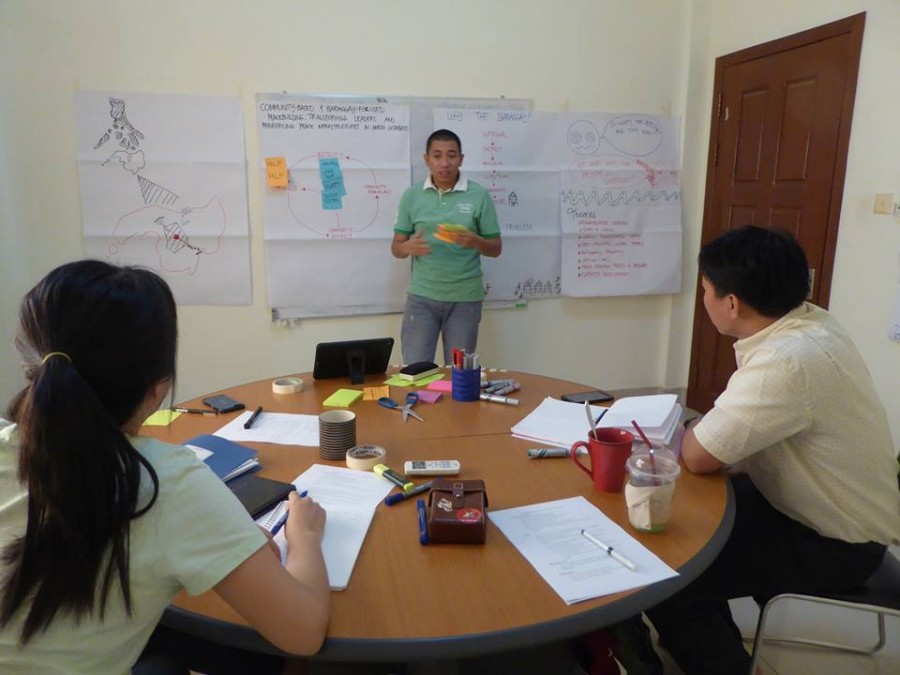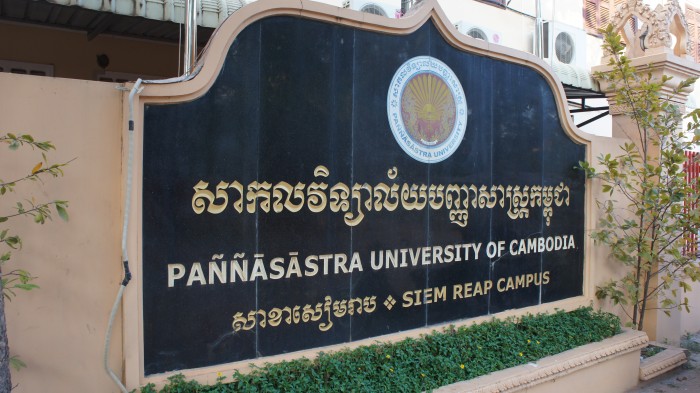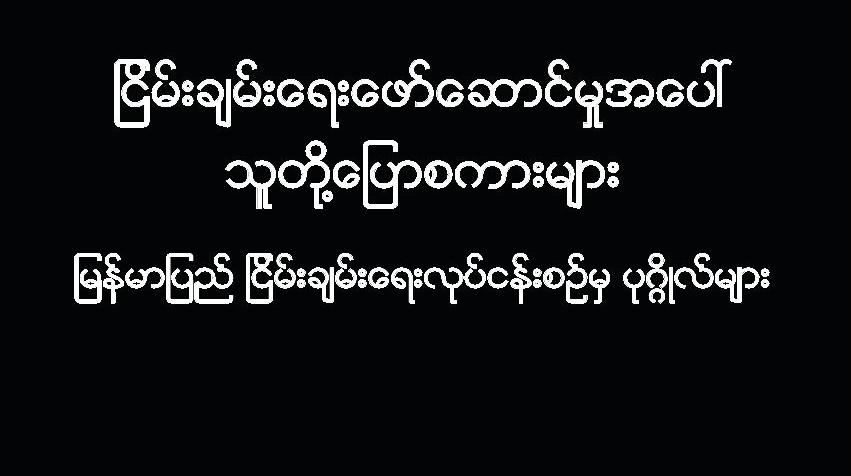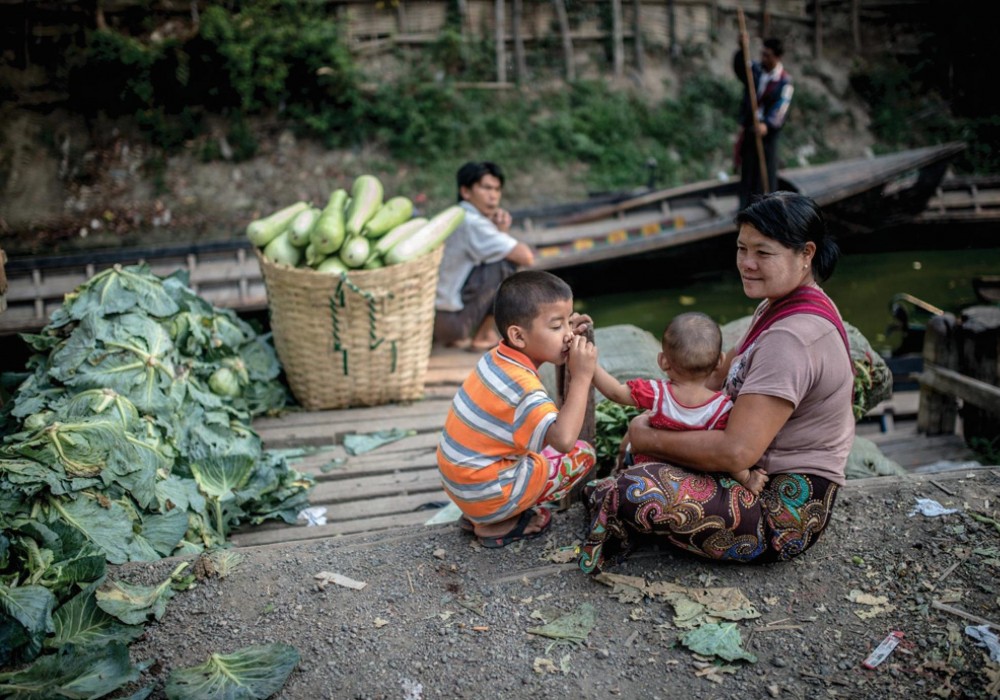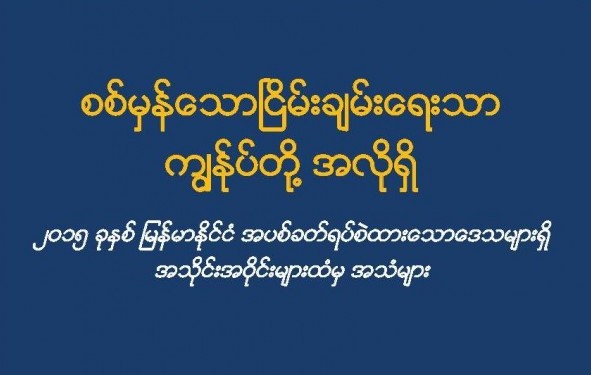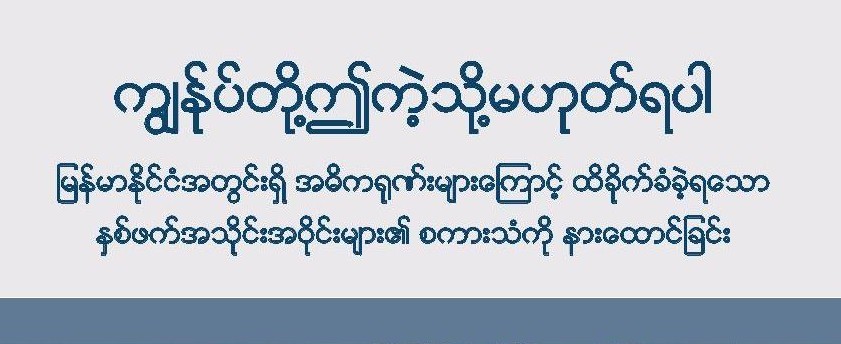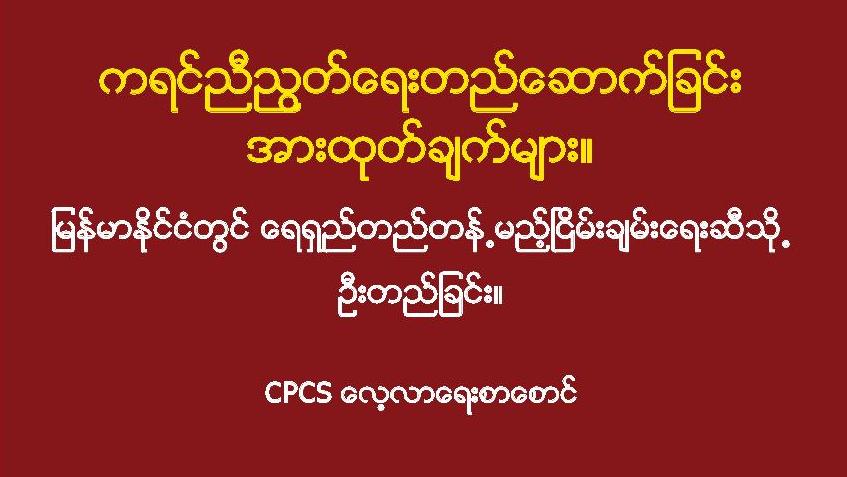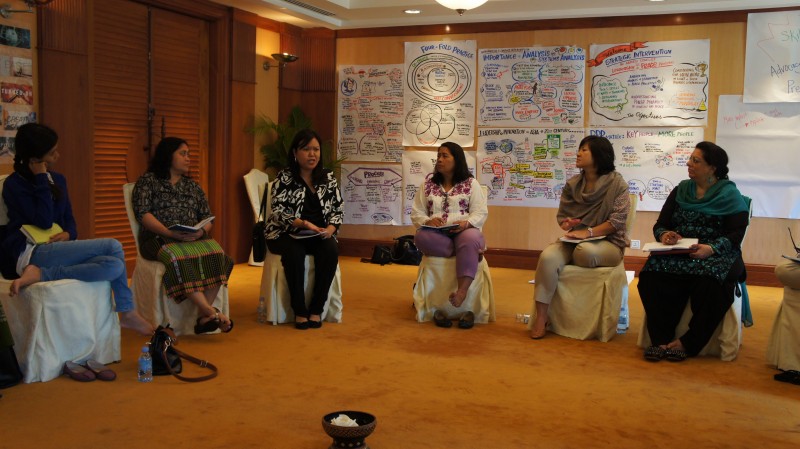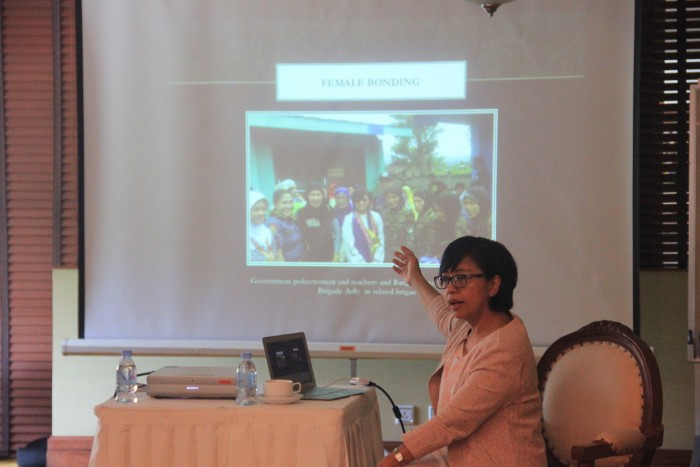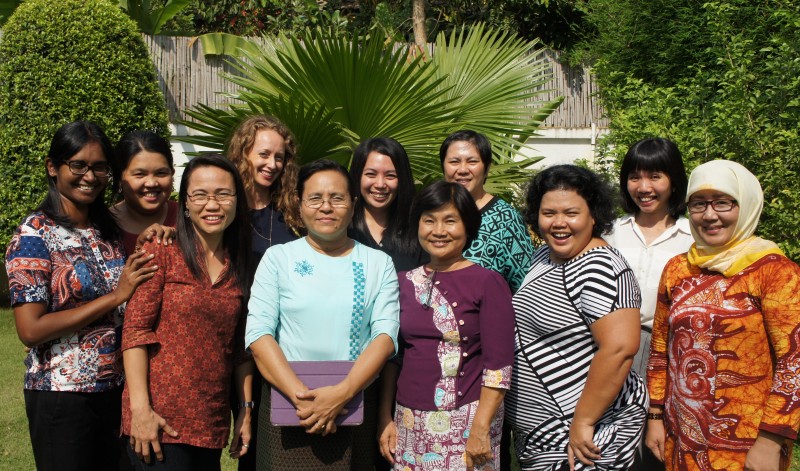“We Want Genuine Peace” Book Launch
The Centre for Peace & Conflict Studies (CPCS) would like to extend our sincere gratitude to all those who joined us for the official launch of We Want Genuine Peace – Voices of communities from Myanmar’s ceasefire areas 2015 on June 9 in Yangon, Myanmar. In particular, we would like to thank the speakers at... Read More
“We want to know what peace is – we want to feel it”
In violent conflict, communities are the ones who are the most affected and who experience first-hand any changes brought about by ceasefire agreements. These people need to be heard for a deeper understanding of how ceasefires arrangements, and wider peace processes, affect those at the forefront of the conflict. Listening to communities Published by the... Read More
Renewed hope and challenges in the Government of the Philippines & the National Democratic Front of the Philippines Peace Process
The recent election of a new administration of the Philippines opens a clear window of opportunity to revive the Government of the Philippines (GPH) and the National Democratic Front of the Philippines (NDFP) Peace Process. Published by the Centre for Peace & Conflict Studies (CPCS), Judge Soliman (Sol) M. Santos latest book, How Do You... Read More
BOOK LAUNCH INVITATION: We Want Genuine Peace – Voices of communities from Myanmar’s ceasefire areas 2015
You are cordially invited to join distinguished guests, stakeholders in the Myanmar peace process, civil society organisations and international donors at the official launch of We Want Genuine Peace – Voices of communities from Myanmar’s ceasefire areas 2015. TIME: 4pm, June 9, 2016 LOCATION: Sedona Hotel Yangon (No. 1 Kabar Aye Pagoda Road, Yankin Township)... Read More
New archives, new partners and Paris Peace Accords Gala
The Cambodia Peace Museum has been busy collecting archives and strengthening and expanding our networks to build a solid foundation for the project in Cambodia. Our most recent archival photographs and articles came from volunteers and journalists visiting the country in the 1980s and 1990s. American Doug Hostetter, of the Mennonite Central Committee United Nations... Read More
New book looks back on 10 years of GPH-NDFP peace process and proposes ways forward
How do you end a protracted, seemingly intractable, conflict that has lasted for more than 40 years? And how do you do it in a context of exhaustion and disillusion? This collection of articles by Judge Sol Santos, presents a thoughtful analysis of the peace process between the Government of the Philippines and the CPP-NPA-NDFP... Read More
ACTS Master’s Programme
The Applied Conflict Transformation Studies (ACTS) Master’s Programme is unique in the field of conflict transformation though its utilization of a hybrid academic-practitioner perspective. The part-time two-year programme, provided in partnership with Paññāsāstra University of Cambodia, offers a thorough, rigorous, dynamic and state-of-the-art approach, drawing on the latest developments in the field and contextual peace... Read More
Why ACTS?
The ACTS Master’s Programme is a unique blend of practical work, action research and theoretical study. By combining these elements, the ACTS course enables participants to develop knowledge and skills that will allow them and their organisations to deepen their understanding of the work they are involved in and increase their ability to work efficiently... Read More
Why Action Research?
Action Research (AR) is a radical approach to research methodology where the distance between the researcher and the subjects is broken down. At the heart of AR is the spirit of inquiry and its hallmarks are a focus on action and utilisation of a self-reflective approach to learning. The ACTS approach to AR follows rigorous... Read More
ACTS Modules
The ACTS Master’s Programme comprises six modules taken over the course of two years and covers areas such as an introduction to conflict transformation theory and practice, peace process and mediation support, post-conflict normalisation, and research methodology. MODULE ONE: INTRODUCTION TO CONFLICT TRANSFORMATION THEORY & PRACTICE MODULE TWO: PEACE PROCESS & MEDIATION SUPPORT MODULE THREE: POST-CONFLICT... Read More
People of Myanmar’s Peace Process now in Burmese
The CPCS publication Making Peace in Their Own Words: People of Myanmar’s Peace Process is now available online in Burmese. The book, launched late last year in Yangon and New York, presents an interwoven narrative of the views, origins and life experiences of key individuals from different sides of the negotiation table that have played... Read More
Listening to communities: Strengthening inclusivity & understanding
What is CPCS Listening Methodology and how is it carried out? How can listening projects be used in peacebuilding efforts to increase inclusivity and strengthen dialogue? What are the opportunities and challenges such an approach entails? How can listening methodology contribute to policy discussions to promote greater understanding and representation in peace processes? The following is an... Read More
Ceasefire monitoring report now in Burmese
The CPCS publication We Want Genuine Peace: Voices of communities from Myanmar’s ceasefire areas in 2015 is now available in Burmese. Based on 772 conversations carried out between November 2014 and March 2015 with 1,072 people living in six states which have ceasefires, We Want Genuine Peace presents community opinions about their direct experiences of living... Read More
Communal violence publication now available in Burmese
Using CPCS Listening Methodology, this publication elevates community voices from six locations in Myanmar that experienced communal violence to reveal a strong alternative narrative to the one commonly heard on the issue. Conversations were held in November 2014 with 220 community members from Meiktilla, Mandalay Region; Lashio, Shan State; Mandalay, Mandalay Region; Shwebo district, Sagaing... Read More
Karen unity building paper now in Burmese
The CPCS publication Karen Unity Building Initiatives: Towards sustainable peace in Myanmar is now available online in Burmese. In light of ongoing unity-building measures in Myanmar, the CPCS Learning Paper examines the Karen history of conflict, seeking to analyse the push for greater unity amongst the Karen. It explores Karen opinions and experiences of unity building,... Read More
Photo Gallery
Click on any of the thumbnail photos below to launch the Peace Leadership Programme Photo Gallery viewer.
Strengthening strategic peacebuilding
By fostering the authentic leadership of a comprehensive constellation of key peace leaders across all sectors, the overall inclusivity, resiliency and sustainability of peace is strengthened. The result to date has been the creation of groups of women who feel personally and professionally enriched and renewed. Over the months, the groups develop great respect for... Read More
Approach & methodology
Slowing down to go fast Over a period of approximately six months, the programme offers space to get away from the stress of work and be in community with a group of peers. We gather and work in beautiful peaceful settings, intentionally offering refreshing and relaxing environments in order to ensure that the women leave... Read More
Cultivating systems & self-awareness
So much time and effort in peacebuilding work is often dedicated to changing the system – changing ‘it’ rather than changing ‘us’. The skills and frameworks to be strategic in our work are absolutely necessary to be effective. However, true systems change – the goal of conflict transformation – also requires that we as individuals change, that the consciousness of... Read More
The Mulitplier Effect
The programme is invite only and focuses on a select group of women already in positions of leadership in current peace processes in Asia. CPCS has identified these women based on their position, passion, commitment to conflict transformation and their proven ability to move things forward. All of the leaders possess high levels of legitimacy... Read More

